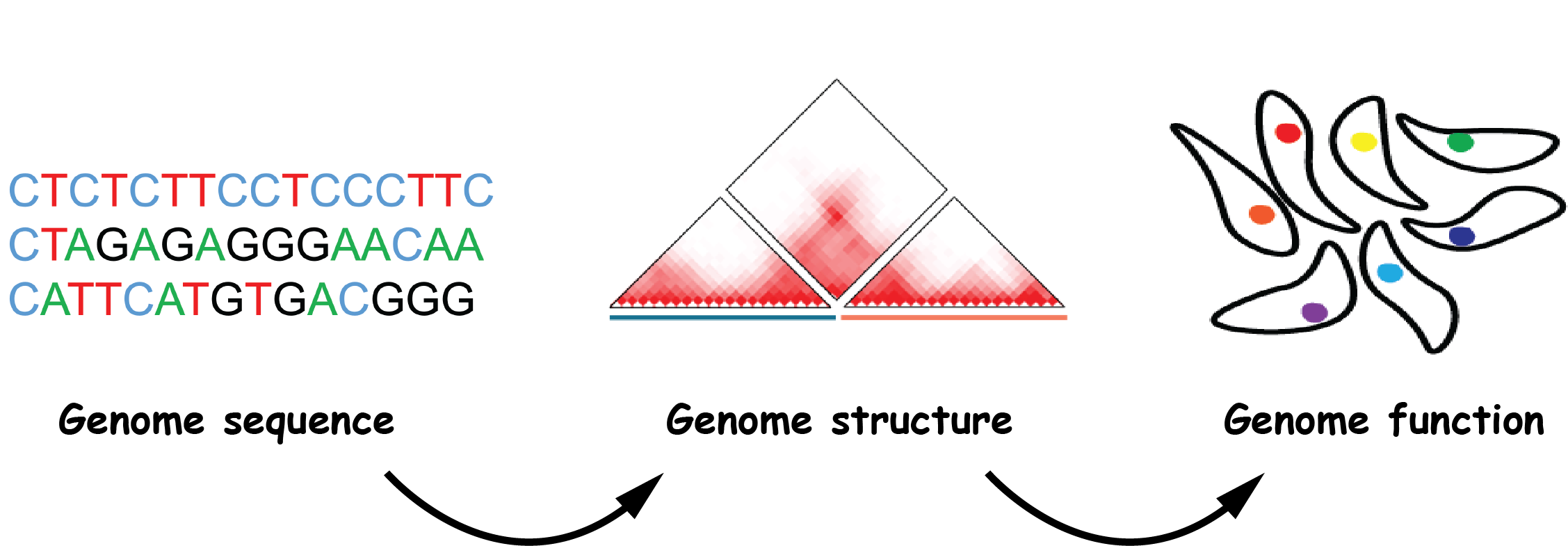Current Projects

Can we predict gene dysregulation when a nearby structural variant is observed?
In this project, we will explore the functional consequences of rearrangements in the human genome. We will first engineer complex rearrangements near the oncogene of interest. We will then simultaneously measure gene expression and the variant event by utilizing single-cell multi-omic sequencing, followed by computational modeling. This will first identify risky partner regions genome-wide for certain oncogenes, then generate an oncogene expression prediction model for cancer diagnosis in the future.
What is the mechanism of distal gene regulation, and how is it reorganized in cancer and evolution?
In this project, we will investigate the rules of distal enhancer-promoter communications. We will first develop a genome conformation perturbation assay to identify specific cis-motifs required for distal enhancer-promoter looping and the regulation of the gene of interest. Further exploration of the prevalence of such elements in super-enhancers and oncogene promoters, as well as their corresponding trans-factors, will provide insights into the enhancer hijacking mechanism in cancer and genome evolution across different species.
Future projects (seeking collaborations)
The long-term goal of this lab is to leverage our foundational discoveries in human genetics and functional genomics to generate translational insights that directly contribute to improving human health.
-
Profiling structural variants in rare human cancers and genetic diseases. We are very interested in identifying driver structural variants in rare human cancers and other genetic diseases, as we have experience in developing cell line models for molecular-level mechanism explorations. New knowledge in this direction will further empower our gene expression prediction model in various contexts.
-
Elucidating oncogene dysregulation in vivo. We are looking forward to extending our discoveries in long-range gene regulation to model organisms in vivo. We aim to interrogate key enhancer-promoter communications involved in oncogene dysregulation, and gain deeper insights into how these regulatory mechanisms operate in a living organism model. In the long term, this direction will provide a platform of drug screening and gene therapy development for human cancer and other genetic diseases.
